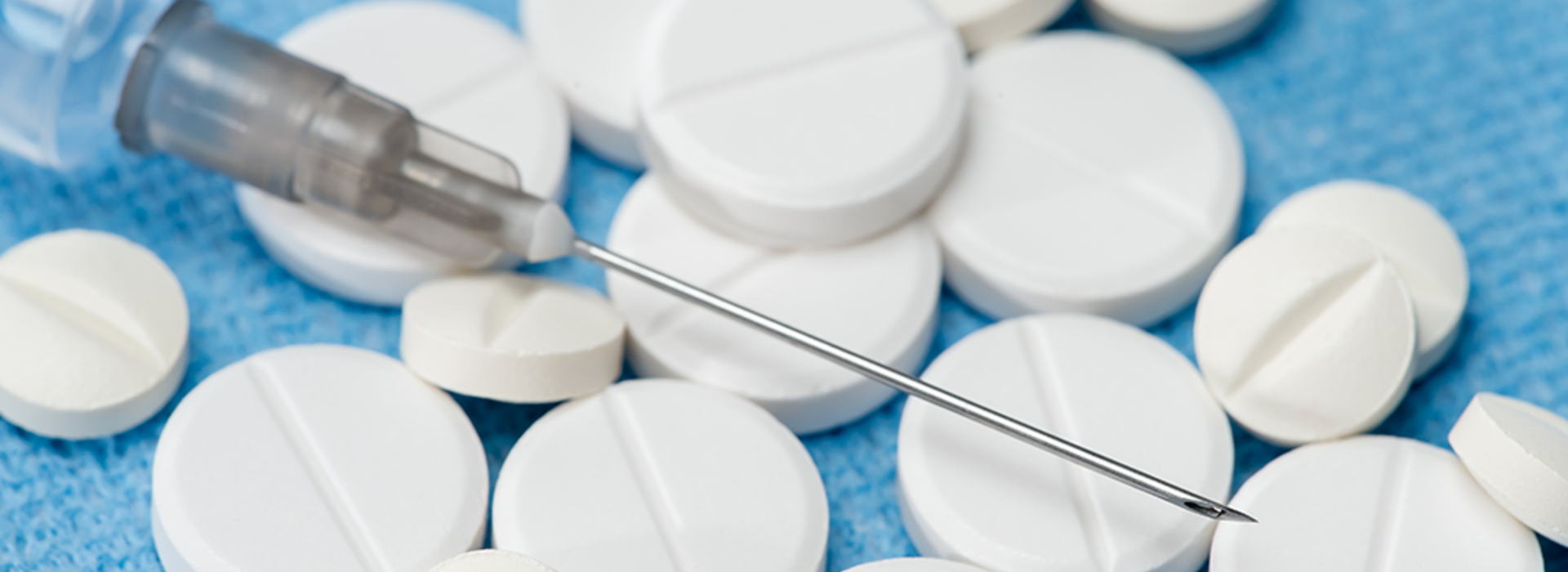
$2.4M will Support Novel Opioid Research at the University of Minnesota Medical School
Researchers are developing antibody-based medical countermeasures against overdose of fentanyl, fentanyl-like drugs
MINNEAPOLIS, MN- Oct. 7, 2020 – A new $2.4 million grant from the National Institutes of Health (NIH) Chemical Countermeasures Research Program (CCRP), administered via the National Institute on Drug Abuse (NIDA) “Countermeasures Against Chemical Threats (CounterACT)” program, will aid researchers at the University of Minnesota Medical School in identifying better ways to treat acute intoxication by fentanyl and fentanyl-like drugs. These opioids, according to the World Health Organization and the U.S. Department of Homeland Security, are considered public health threats and potential chemical weapons.
Led by Marco Pravetoni, PhD, an associate professor in the Medical School’s Department of Pharmacology and member of the Medical Discovery Team on Addiction, the grant supports the development of antibody-based medical countermeasures against toxicity and death after exposure — whether deliberate or accidental — to fentanyl and fentanyl-like drugs, including alfentanil, acetylfentanyl and carfentanil.
“Fentanyl is a synthetic opioid that is 100 times more potent than morphine and can be used therapeutically to treat severe pain,” Pravetoni said. “Unfortunately, fentanyl is also manufactured and distributed illegally and is associated with recent, dramatic increases in opioid-related fatalities in the U.S. and worldwide. There is growing concern that other potent fentanyl analogs, such as alfentanil, acetylfentanyl and carfentanil, which can be 10,000 times stronger than morphine, could pose a risk to national security. Originally developed as a large animal painkiller, carfentanil’s extreme lethality has led the U.S. and other governments to consider its potential as a chemical weapon.”
Pravetoni, a leading expert in the development of biologics for the treatment of substance use disorders, has already created a series of first-generation monoclonal antibodies effective in counteracting respiratory depression (depressed breathing) and bradycardia (depressed heart rate) induced by fentanyl, oxycodone and heroin in animal studies (10.1124/jpet.120.000124). Monoclonal antibodies act by selectively binding to the target opioid and preventing its toxic effects associated with poisoning and overdose.
Under this new grant, Pravetoni, Carly Baehr, PhD, first-author of the peer-reviewed article and a postdoctoral fellow at the U of M Medical School, and their multi-institutional team, including David AuCoin, PhD, with the University of Nevada Reno; Marie Pancera, PhD, with the Fred Hutchinson Cancer Research Center; Saadyah Averick, PhD, with Allegheny Health Network; and Charles France, PhD, with UT Health San Antonio, will develop a series of next-generation monoclonal antibodies targeting the fentanyl-like family of chemicals.
“This grant will pave the way for future clinical evaluation and commercialization of these medical interventions,” Pravetoni said. “Our team is committed to developing antibodies as countermeasures in both pre- and post-exposure scenarios, involving both accidental and deliberate poisoning and overdose.”
Their anti-drug antibodies would not interfere with the use of life-saving medications, such as the opioid antagonist naloxone, which is the prime opioid overdose rescue agent or antidote. In addition, antibodies could possibly be used in combination with naloxone or another approved medication to provide longer-lasting protection, decrease hospitalization and increase survival upon exposure.
The grant supports Pravetoni’s research until July 31, 2023. Research activities will be supported under Award Number U01DA051658, funded through the National Institute on Drug Abuse, the National Institute of Allergy and Infectious Diseases and the Office of The Director, National Institutes of Health. The research reported has also been supported by a CounterACT Administrative Supplement to U01DA038876. The content is solely the responsibility of the authors and does not necessarily represent the official views of the National Institutes of Health.
###
About the University of Minnesota Medical School
The University of Minnesota Medical School is at the forefront of learning and discovery, transforming medical care and educating the next generation of physicians. Our graduates and faculty produce high-impact biomedical research and advance the practice of medicine. Visit med.umn.edu to learn how the University of Minnesota is innovating all aspects of medicine.
About the Chemical Countermeasures Research Program
The CCRP was established in 2006 by the National Institute of Allergy and Infectious Diseases (NIAID/NIH) to lead the civilian research and early development of novel or improved medical countermeasures (MCMs) to enhance the nation's medical response capabilities during and after high consequence chemical emergencies. The CCRP provides multiple extramural grant and cooperative agreement research funding opportunities under the NIH-wide CounterACT program. Awarded projects are subsequently administered/managed by the various trans-NIH Institutes and Centers partners depending on the proposed areas of interest (10.1002/ddr.21707).
For media requests, contact:
Angel Mendez
Communications Manager, University of Minnesota Medical School
mende434@umn.edu
785-741-5267